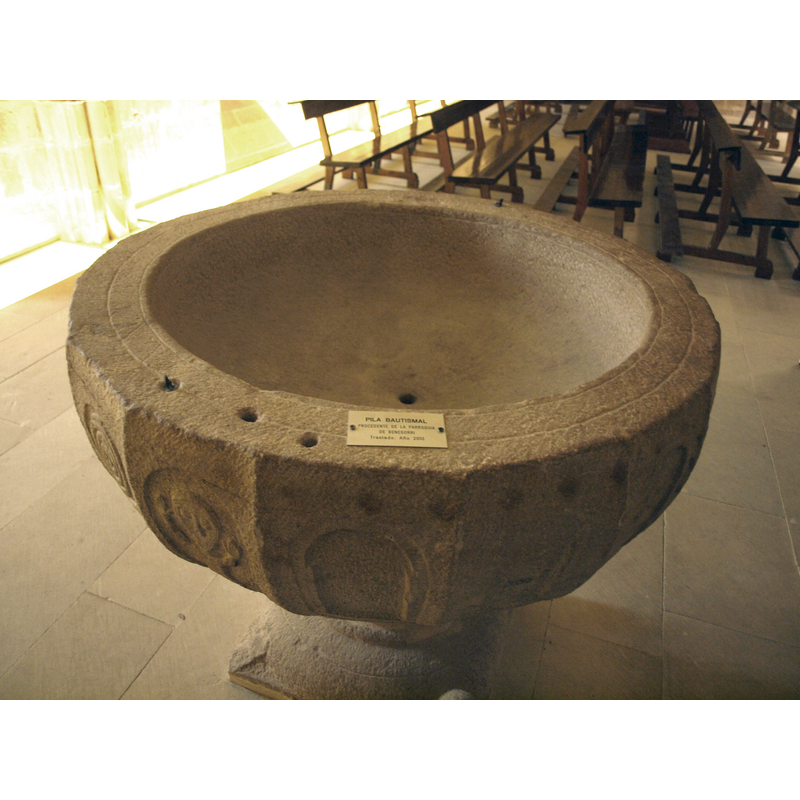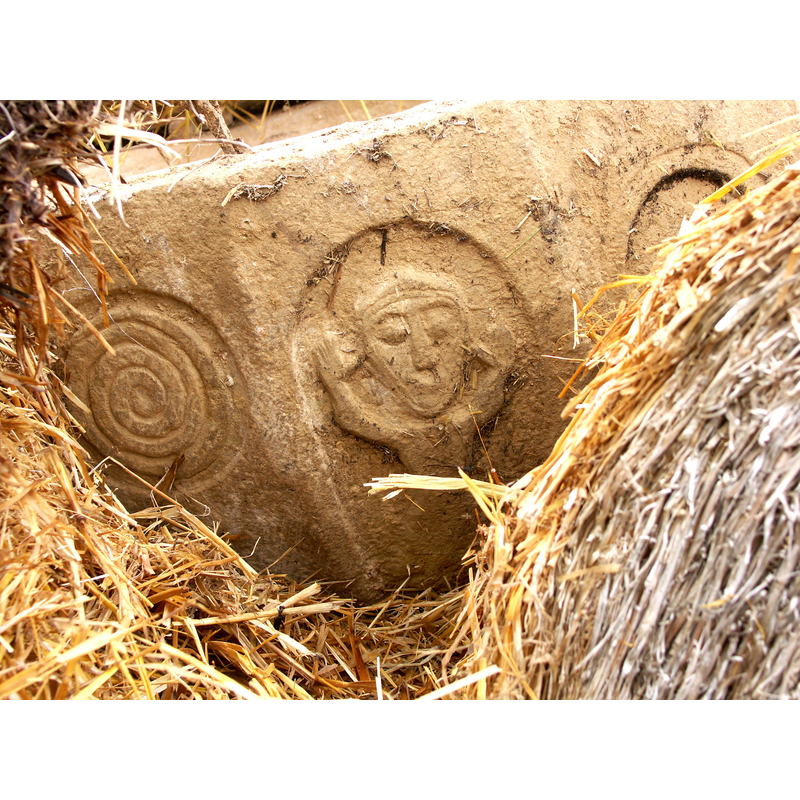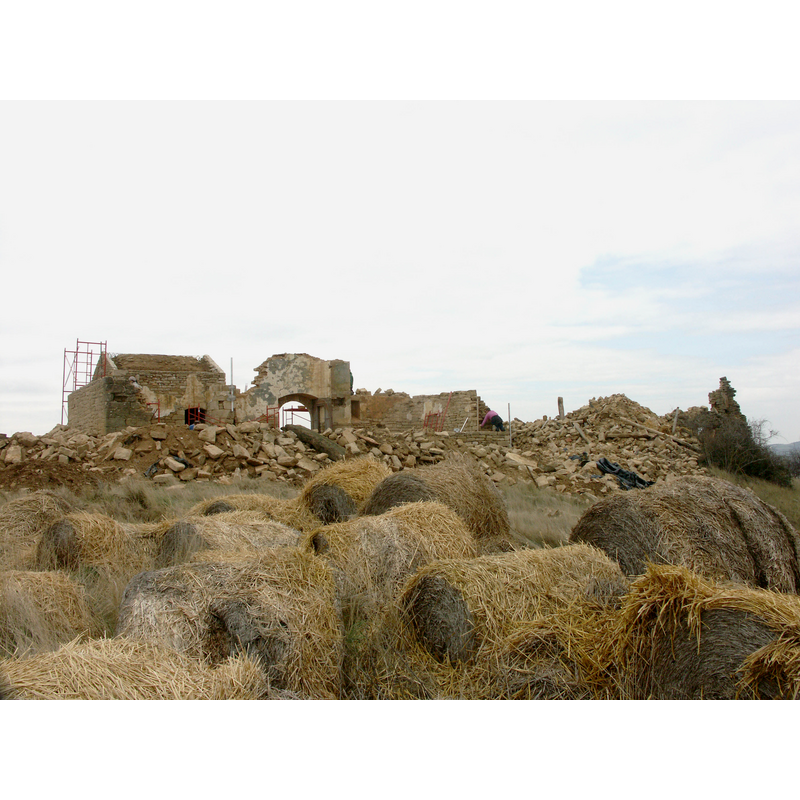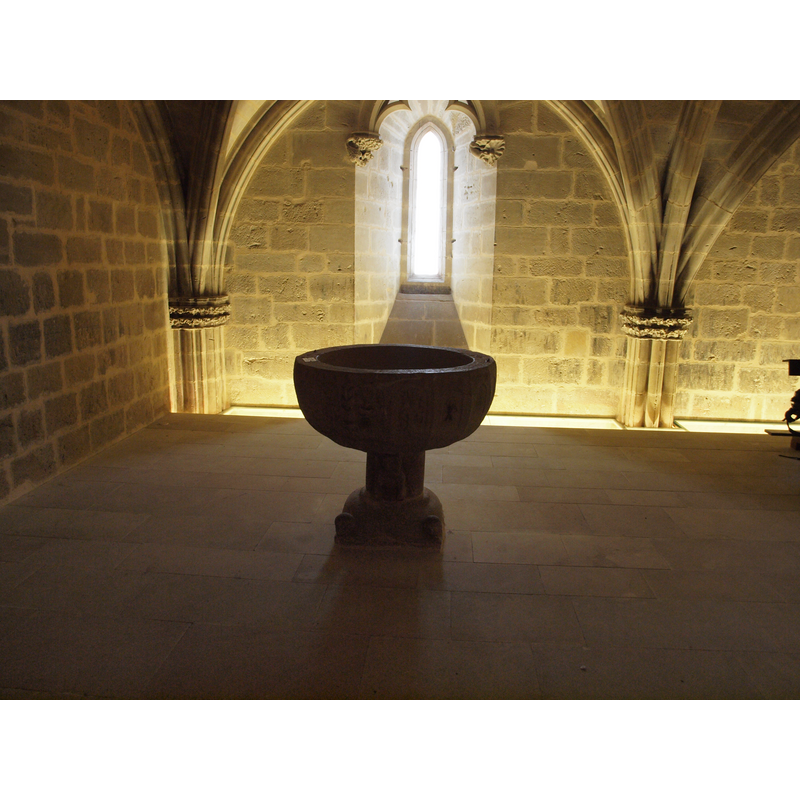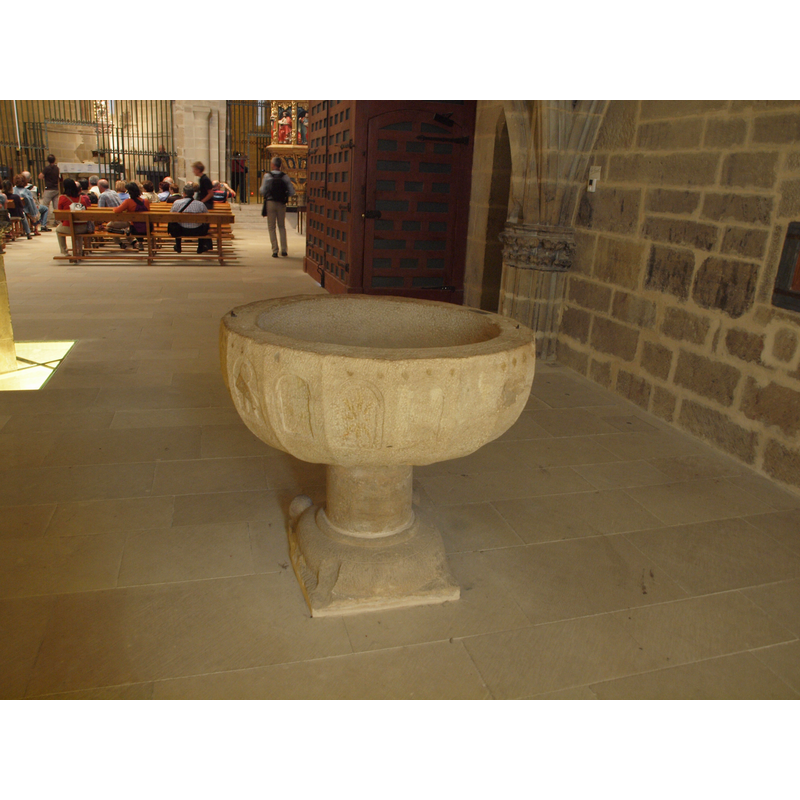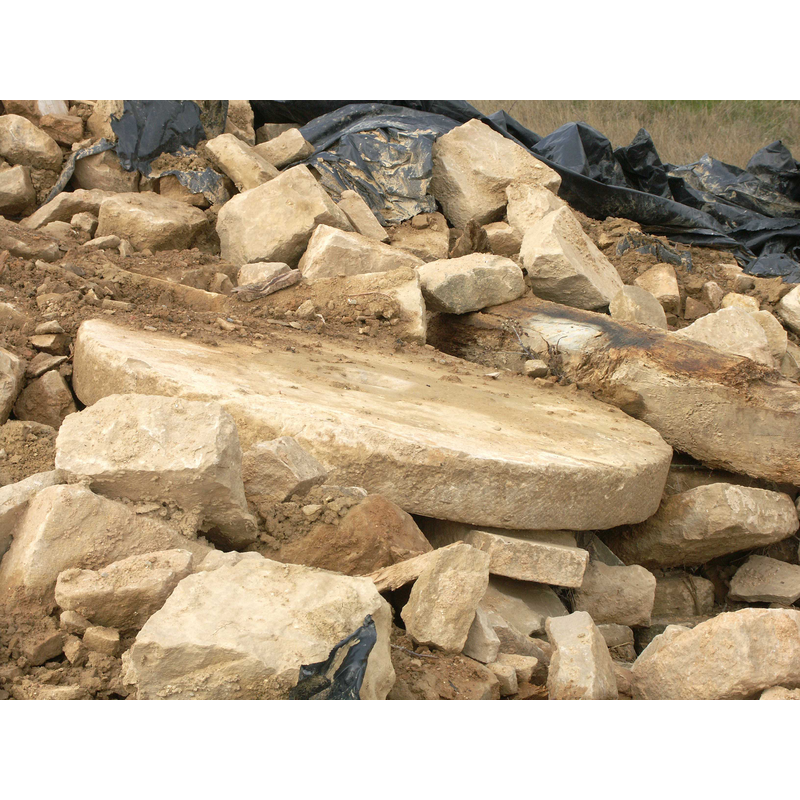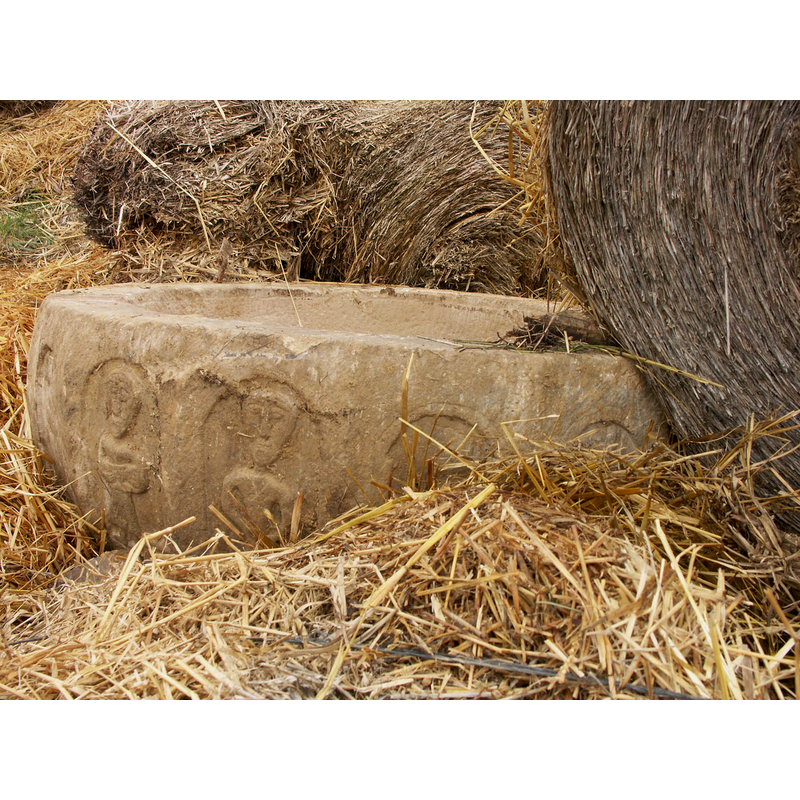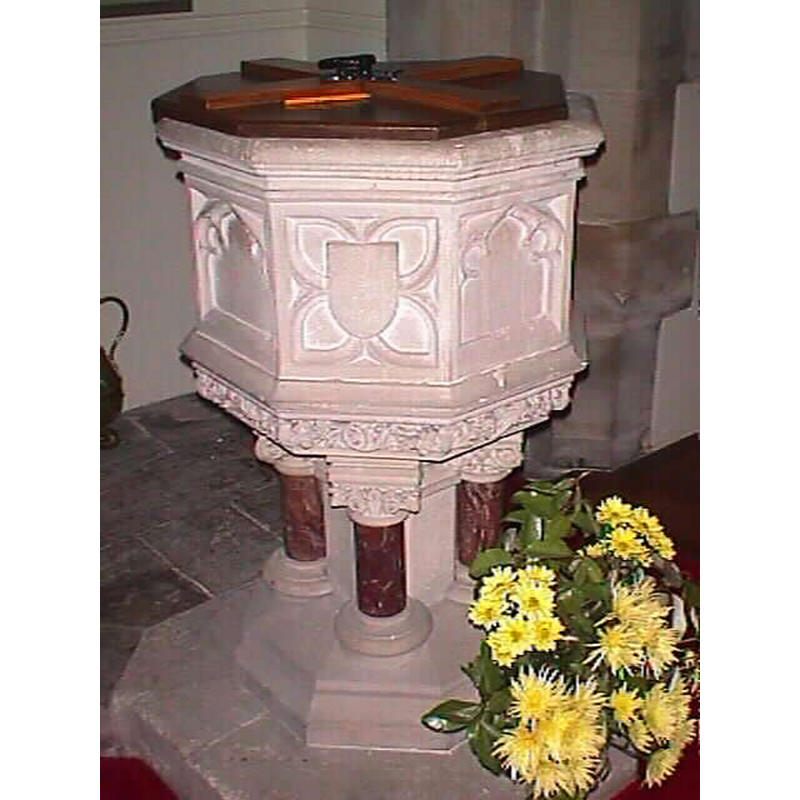Benegorri
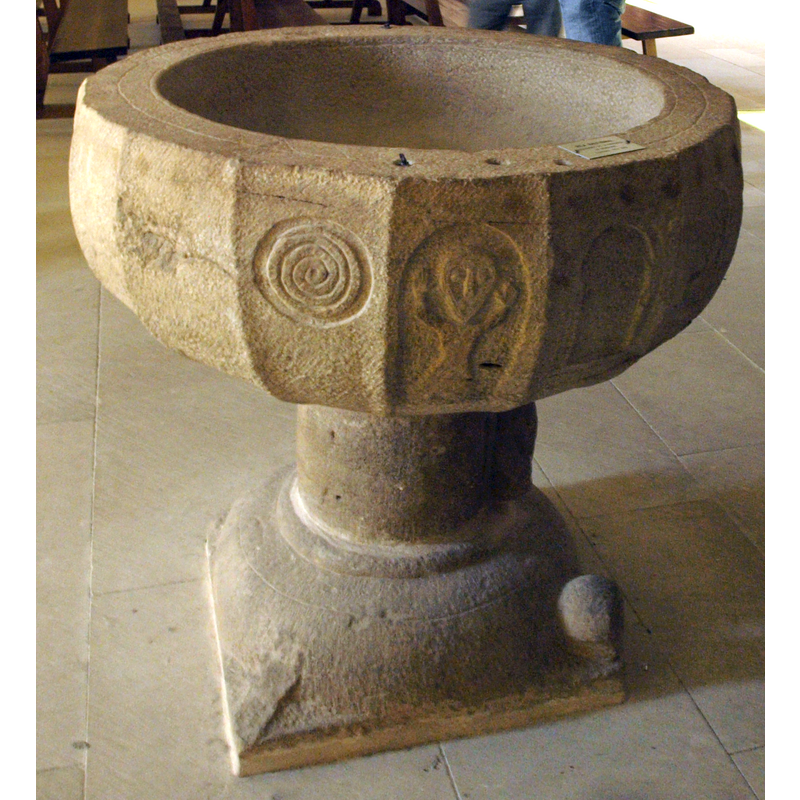
Image copyright © Mikel Unanue, 2014
Image and permission received (e-mail of 2 December 2012)
Results: 20 records
B01: design element - architectural - arcade - round arches
Scene Description: uneven, some arches with figures are larger than the others
Copyright Statement: Image copyright © Institución Príncipe de Viana, 2003
Image Source: Institución Príncipe de Viana (Pamplona, Spain), Archivo Uranga
Copyright Instructions: Image and permission received (file letter of June 2001)
B02: human figure - female - with child - Madonna and Child?
B03: human figure - male - standing - arms akimbo
B04: design element - motifs - spiral
B05: human figure - orant
B06: human figure - male - warrior - with shield and spear - 2
LB01: human figure - head - 2
Scene Description: on the the lower base, shown here as it appeared, detached from the basin and stem, in 2006 -- only two of them have survived
Copyright Statement: Image copyright © Andrés Ortega, 2006
Image Source: digital photograph taken by Andrés Ortega in 2006
Copyright Instructions: Standing permission
LB02: design element - motifs - moulding
UB01: human figure - crouching
Scene Description: fairly large and protruding from the cylindrical stem of the base [NB: the stem of the base as it appeared, detached from the basin and lower base, in 2006 [cf. Font notes]
Copyright Statement: Image copyright © Andrés Ortega, 2006
Image Source: digital photograph taken by Andrés Ortega in 2006
Copyright Instructions: Standing permission
view of font
Scene Description: the font as displayed in the church at Ujué in 2012 -- notice the two missing heads from the lower base
Copyright Statement: Image copyright © Mikel Unanue, 2014
Image Source: digital photograph taken 6 October 2012 by Mikel Unanue for BSI]
Copyright Instructions: Image and permission received (e-mail of 2 December 2012)
view of font and cover
view of basin - interior
view of basin
view of church exterior
view of font in context
view of font in context
view of base
view of basin
view of basin
INFORMATION
Font ID: 04592BEN
Object Type: Baptismal Font1
Font Date: ca. 1200?
Font Century and Period/Style: 13th century, Late Romanesque / Early Gothic?
Church / Chapel Name: Iglesia Parroquial de San Bartolomé [collapsed; in ruins]
Font Location in Church: Originally beneath the gallery of the local parish [cf. FontNotes]
Church Patron Saint(s): St. Bartholomew
Church Notes: ca. 1200 church; modified 16thC
Church Address: C. San Bartolomé de Benegorri, 18, 31395 Benegorri, Navarra, Spain
Site Location: Navarra, Comunidad Foral de Navarra, Spain, Europe
Directions to Site: Located off the NA-5161, in the municipality of Leoz, about 25 km S of Pamplona
Ecclesiastic Region: Diócesis de Pamplona
Historical Region: Valdorba -- Merindad de Olite
Additional Comments: abandoned font / recycled font / moved font [cf. FontNotes]
Font Notes:
Click to view
Described in the Catálogo Monumental de Navarra (1990?-) and in Domeño (1992): Romanesque baptismal font probably of the date of the original church, ca. 1200; the large polygonal (hemispheric) basin has an arcade of irregular round window-like arches all around its side; some of the arches are blind, others are occupied by carved human beings [L->R]: a woman holding a baby in her arms, a man with his arms akimbo (these arches are larger than the others); then, three blind arches, followed by two more, obviously warriors, armed with shields and spears; the rest, if any, are hidden on the side against the wall; the cylindrical stem of the base has a protruding human figure crouching (?) on its side. The lower base is round-to-square and has heads at 90-degree angles [two of them broken off and missing now]. An article by Javier Intxusta in the Amigos del Romanico web site [www.amigosdelromanico.org], 'El románico y el entorno' (May 2005 [2006?]) informs that, after the collapse of the parish church in Benegorri, the font was taken by the Archbishopric of Pamplona and moved to Ujué ["La iglesia románica de Benegorri (Valdorba) se hundió. La Pila bautismal -bella muestra del arte románico con figuración humana en relieve- quedó enterrada bajo los escombros. El Ayuntamiento de Leoz negoció con el Arzobispado de Pamplona el hacerse cargo de la ruina y utilizó sus recursos humanos para desescombrar el edificio y rescatar con éxito esa obra de arte. El objetivo se cumplió, se conservará la planta del edificio y la pila apareció intacta, el antiguo espacio de la sacristía se convierte en la nueva Iglesia (en Benegorri viven menos de seis personas) y en él se pretendía guardar la Pila… Pero el Arzobispado no ha entendido ni la labor del Ayuntamiento, enfatizada por los AdR de la zona, ni la voluntad de los vecinos del pueblo, ni del Valle, y se ha presentado con un camión y una pluma y sin mediar palabra se la ha llevado se supone que al adecuado lugar de Ujué."]. Intxausti's article criticises the decision and requests that the font be returned to the newly arranged church in the village of Benegorri [NB: information confirmed from a local source -- cf. e-mail of 1 June 2006 from local source (AdeR Navarra)]. A later communication appeared In 'Diario de Notcias' (Pamplona, Spain) (issue of 27 January 2009) informing that the municipality of Leoz wants the font back in the Benegorri church, now restored. [NB: as of December 2012 the font is still in Ujué -- the font now bears a label that gives the date of the move as 2010]. A photograph taken 22 June 2021 by Errotaburu [https://commons.wikimedia.org/wiki/File:Benegorriko_eliz-parrokiko_bataiarria.jpg] [accessed 3 May 2025] is captioned: "Benegorriko eliz-parrokiko bataiarria, egun Uxueko Elizaren barrualdean […] Bataiarria 2010ean eraman zen. Goialdea harri bakarreakoa, grabatuekin apaindua", informing that the font is still in Ujue.
Credit and Acknowledgements: We are grateful to the Institución Príncipe de Viana (Pamplona, Spain), Archivo Uranga, for the original images of this font. We are also grateful to Andrés Ortega, of www.romanicoennavarra.info, and to Mikel Unanue, for their updated photographs of this font
COORDINATES
UTM: 30T 613905 4715233
Latitude & Longitude (Decimal): 42.581111, -1.611944
Latitude & Longitude (DMS): 42° 34′ 52″ N, 1° 36′ 43″ W
MEDIUM AND MEASUREMENTS
Material: stone, limestone?
Number of Pieces: three?
Font Shape: polygonal, mounted
Basin Interior Shape: round
Basin Exterior Shape: polygonal
Drainage System: centre hole in basin
Drainage Notes: no lining
LID INFORMATION
Date: modern
Material: wood
Apparatus: no
Notes: The flat wooden lid appears relatively modern but the rim staples are probably original
REFERENCES
- Domeño Martínez de Morentín, Asunción, Pilas bautismales medievales en Navarra, Pamplona: Gobierno de Navarra, 1992, p. 141-142
- García Gainza, María Concepción, Catálogo monumental de Navarra, Pamplona: Gobierno de Navarra, Arzobispado de Navarra, Universidad de Navarra, [1990?], vol. III: 146
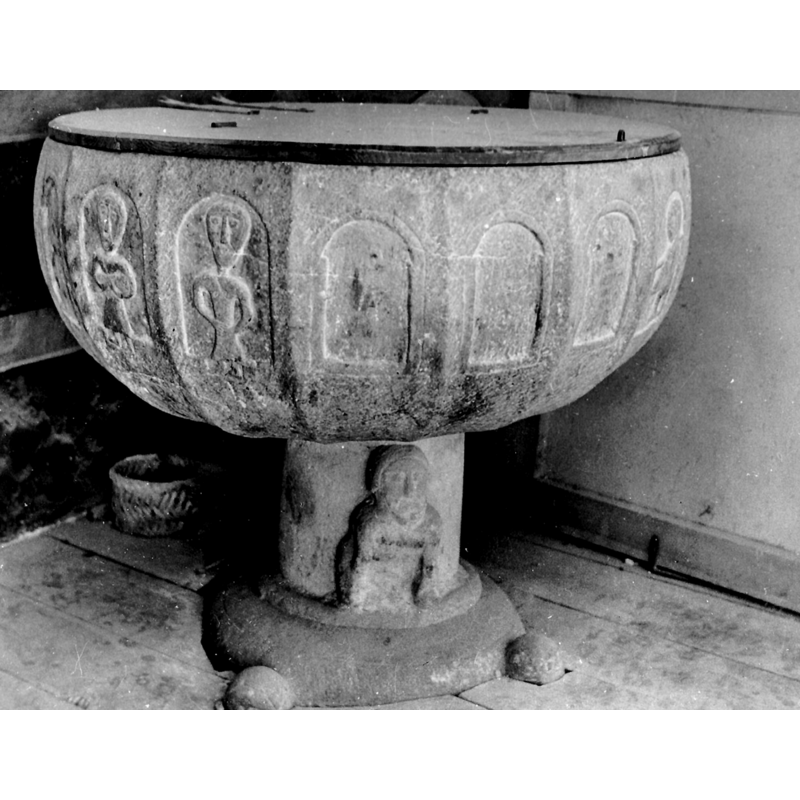
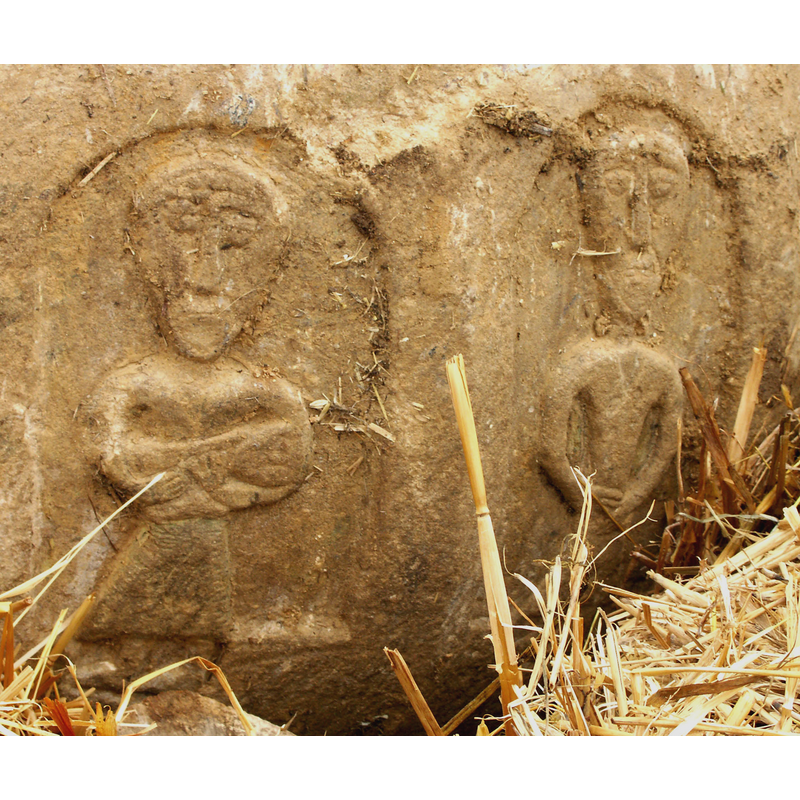
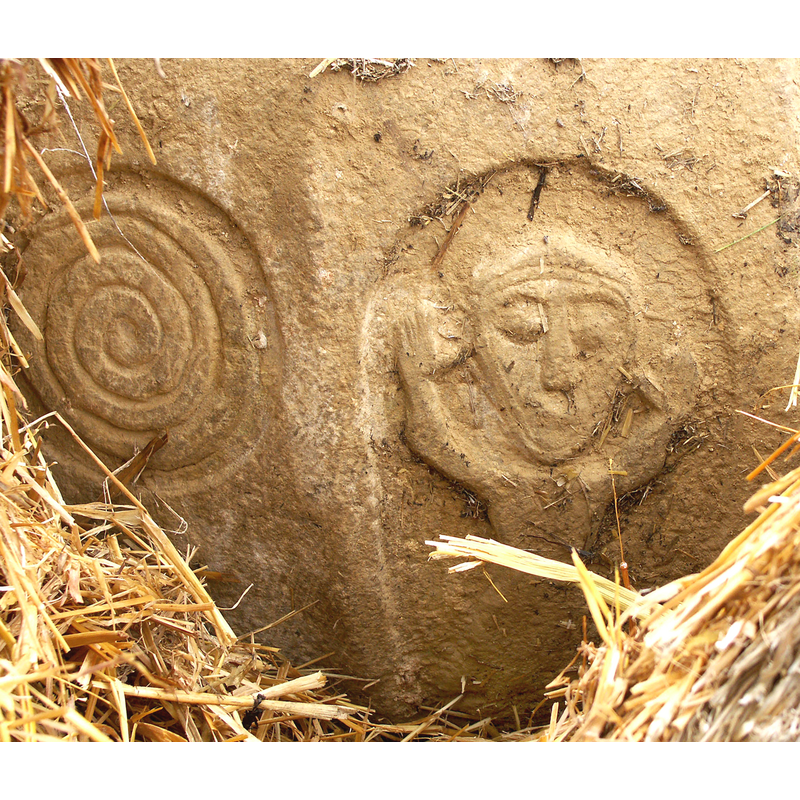
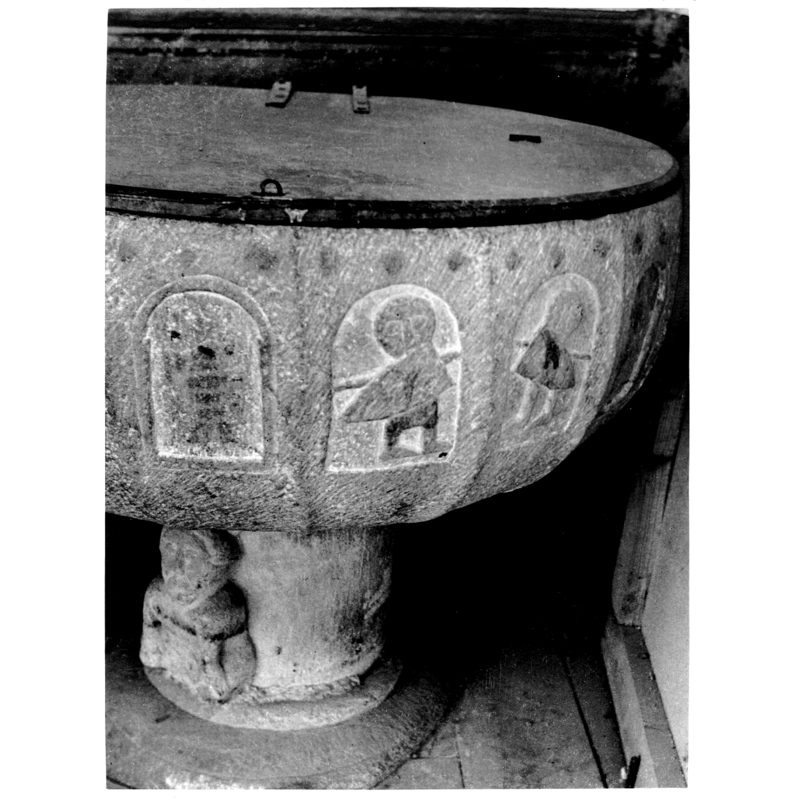
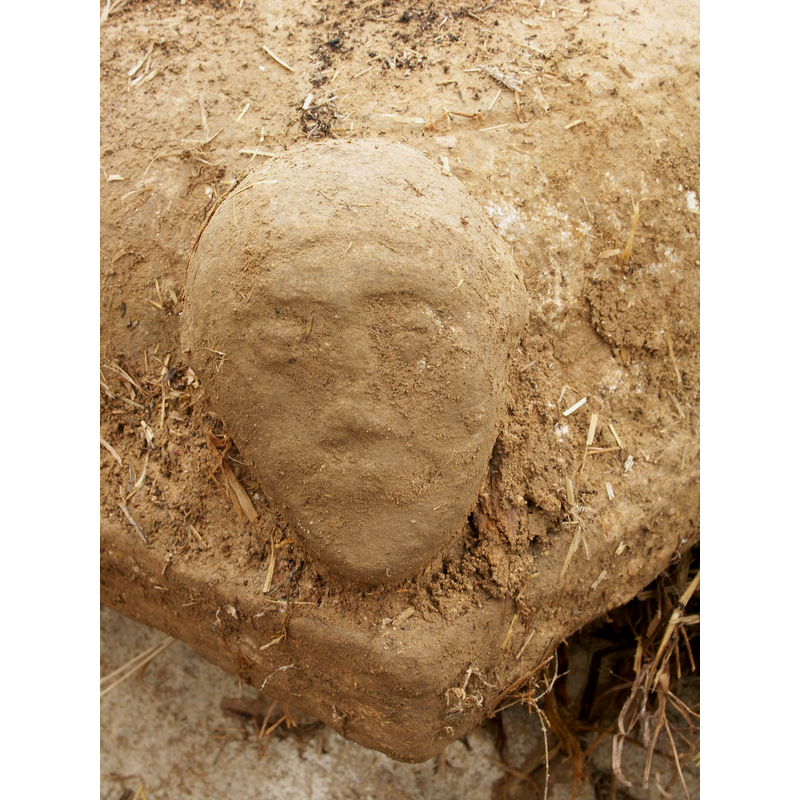
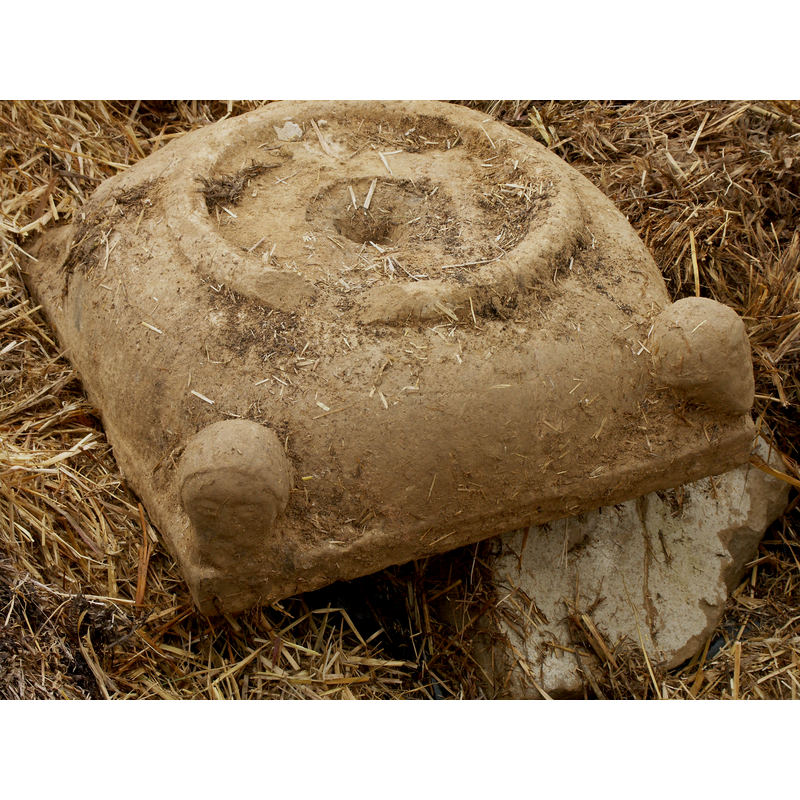
![fairly large and protruding from the cylindrical stem of the base [NB: the stem of the base as it appeared, detached from the basin and lower base, in 2006 [cf. Font notes]](/static-50478a99ec6f36a15d6234548c59f63da52304e5/compressed/1090308002_compressed.png)
